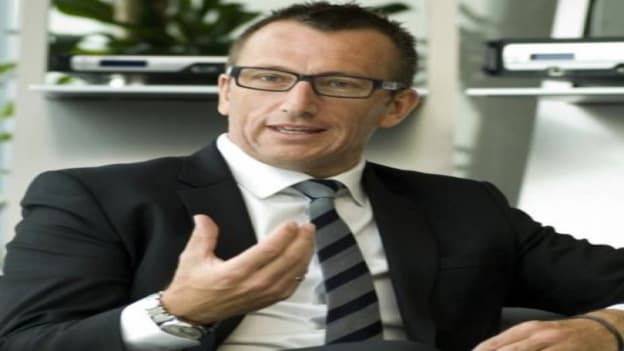Hiring and training for technological change: Callum Eade

At a time when the speed of technological change and capabilities is increasing faster than the human capacity to evolve alongside it, keeping the people aspect—the human impact—in mind can be critical to business strategy.
People Matters talked to Callum Eade, Vice President for the Asia Pacific and Japan regions for data management and protection company Commvault, about what it’s like to recruit and manage a team providing technological solutions at a time when those solutions are changing at high speed. Eade also talked about how HR was able to play a role in grounding his team’s strategy in the people implications of what they do.
Here are some excerpts from the interview.
What's the talent situation in APAC like for your field? Are you finding the people you need?
From a technical capability perspective, the greatest number of PhDs per capita comes out of countries in Asia. We only need to look at South Korea, China, India—I think we’re spoiled for choice in this part of the world. We have no shortage of skills and capabilities for the technology that we bring to market.
But we do have an obligation as an organization, to the new graduates or technologists that we bring in, to ensure that we put in the vision, time, and money to upskill them and enable them to articulate our story. Does that mean we’re hiring people who know exactly how to articulate our technologies? Not always, no. Does it mean we’ve got people coming into the company who are passionate about where IT is? Absolutely.
Could you share a bit about how you upskill your people and keep them current?
We spend a lot of time making sure that our incoming technical capability can shadow senior business leaders, so that they can see the relevant skills in action. And one other thing that I am a strong proponent of is making sure that not only do they understand the technology, they also understand and are understood by the other facets of the business. There is absolutely no reason why HR shouldn’t understand how we understand the needs of our customers, why marketing shouldn’t understand how we pitch to meet the needs more accurately.
Do you work very closely with HR to get that mutual understanding in place?
It’s absolutely critical. Here’s a very real example. I took HR to a customer meeting—we framed it as giving a people and culture representative the opportunity to understand what it’s like in the field. It completely changes their ability to have an educated conversation with the leaders in the other parts of the business.
And the lady from HR asked such a poignant question. She said: “Given the change you’ve made by using this technology, what impact has it had on the culture of your organization?” And what came out of that discussion was an entirely new strategy about ensuring that the cultural impact to the people, to the team, was mitigated.
I wouldn’t have asked a question about culture. I learned a lot from that. Sometimes things are moving so quickly, it is critical that we just stop and consider the implications that a change will have.
What are some of your own thoughts about culture?
One mandate that’s very close to my heart is the concept of diversity and inclusion. One of the first hires I made when I came into this organization was a woman who’s been away from the workforce for a while. She has two children; she worked for a large enterprise organization in EMEA, came to Asia with her husband, and I employed her. She hit the ground running fast. She was so excited to be back in the workforce.
I met with this other woman, an American who had been here for some time and made a success of her career. I asked her to come and speak to our team...unbelievable. Not only was this woman successful in her field, she had a PhD, she’d gone to multiple universities, she’d been a director of her own company. There is such an opportunity when you have people regardless of race, regardless of gender, that have passion and want to come into this sector.
How do you hire for the different markets that you work with?
You need to be looking for local representatives to help you tap into the compliance requirements. In Singapore, for example, it’s critical that we work with Singapore employees to help work with the Singapore government agencies.
When you recruit, what are the top skills or traits you look for?
Subject matter expertise is critical; the ability to sit in front of the customer and have an educated conversation around the technology that we bring to market. We are a specialist organization, therefore it’s incredibly important to have a team with that capability. They may not need to use it all, but they need to be armed with it.
We have an obligation to have people with the capability to help an organization transform: to be able to sit down, walk a mile in our customer’s shoes, understand their business, understand the opportunities and the challenges they’re encountering. We’re talking traits like flexibility, innovation, empathy, and the ability to create a vision for your customer.















